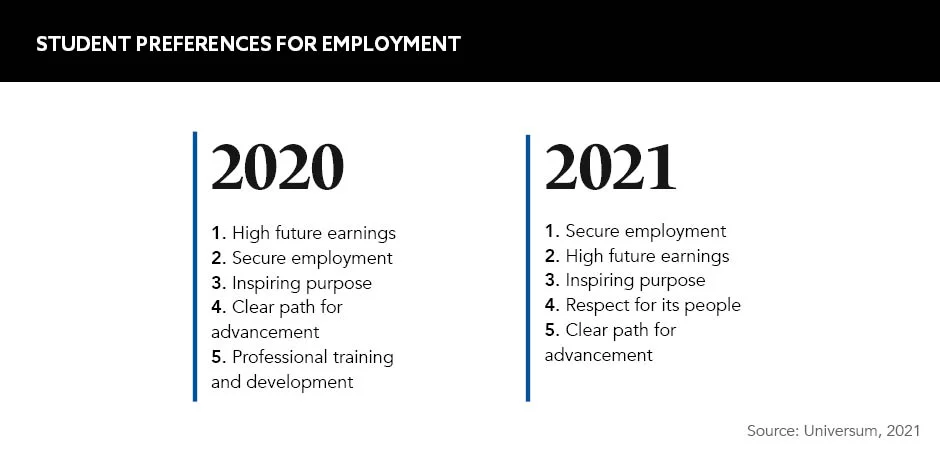Appealing to the younger generation is not always an easy task – especially so in recruitment for the pharmaceutical sector. Some companies are taking steps toward actively shaping career pathways for those ready to graduate, and working to keep these bright minds on board
Words by Jade Williams
From constructing painfully specific job specifications to reaching out to hordes
of prospective candidates only to receive a handful of responses, grappling with the issue of recruitment can resemble that of Sisyphus in Homer’s Iliad, who was condemned to roll a boulder up a hill for eternity.
The pharmaceutical industry in particular can struggle to recruit new talent owing to misinformation and fearmongering, alongside stiff competition with the healthcare sector. But there are multiple ways in which pharma companies can improve their outreach to potential applicants and become more appealing to the younger generation of workers just entering the job market.
Shaping future workers
Speaking at FT Live’s Global Pharmaceutical and Biotechnology Conference, Anne-Cécile Potmans, General Manager, Fast Trak, Cytiva, highlights some of the current hurdles surrounding recruitment in pharma. For example, companies must focus on not only finding new hires in an incredibly competitive environment, but also finding highly-specialised talent for novel platforms like cell and gene therapies. In this case, Potmans says many companies “have difficulties finding exposure to [talent] with the right skills that are needed, [they] don’t have a lot of talent coming with a lot of hands-on experience”.
A solution, Potmans suggests, is for the industry to partner with academic institutions, which would provide individual companies with early access to talent alongside an ability to “design the curriculum to be able to ensure they get the talent that they need with the skills that they need”. Shaping what students learn in this way enables the future workforce to be well informed about the near-constant innovations emerging from pharma, ensuring prospective recruits have the skill sets needed to succeed in their applications and future roles.
Retaining talent
Offering internships is another effective way to catch young talent in the early stages of their career. “Internships are a good way to learn on-the-job training,” notes Potmans, but she warns that companies must be equipped to retain promising individuals after these schemes have concluded. “You train, and you retain,” she says. “If you don’t have a retention plan, you will get poached by the competition.” Companies that allow talent to slip through their fingers are making costly mistakes – ones that competitors will ultimately benefit from when they offer trained students a more appealing opportunity at their own organisations. Ensuring there is a pipeline in place for students to re-enter their internship company after graduation is key to retaining the talent formed during that crucial training period. For internships taken post-graduation, offering a promotion scheme after successful completion of the professional placement can generate company loyalty from the trainee.
Sponsoring education initiatives
Gerard Quinn, Vice President, Innovations and Informatics, ICON, details how his company is working to secure postgraduates into science-based roles using methods other than corporate internships. During his panel discussion entitled ‘Transforming early-stage R&D with AI and digital innovation’ at FT Live’s conference, he echoed Potmans’ views that there are challenges in not only recruiting talent, but that once recruited, “it is critical to maintain that knowledge and capability within an organisation”.
To counter these challenges, Quinn explains that ICON is working to sponsor ‘capstone projects’, which involve students – often in their final year of school – performing independent group research in order to devise an innovative solution to a real-world problem. Displaying a willingness to sponsor opportunities like this, and assist students in getting their qualifications, additionally conveys that pharma companies are keen to invest in younger generations’ futures. In turn, this helps to build a more favourable representation of the industry in the eyes of prospective talent.
Building value
Holding a reputation of generosity can also signify a company culture that is rooted in the importance of value and purpose, which is vital in the modern job market. Also speaking at FT Live’s conference, Lauren Duprey, Chief Human Resources Officer, Takeda, notes that candidates are increasingly far more interested in asking themselves “what are the values of this organisation?” than questioning the prospective salary range, titles and benefits that come with the position. If a candidate knows that what the company stands for aligns with their own values, it can offer a sense of security in a job application, especially in an age of introspectiveness and a heightened sense of responsibility for the world we live in. Offering a positive working environment aligned to workers’ needs and beliefs is a sure-fire way to become more appealing amidst the crowd of similar job postings from the competition.
Duprey closes her remarks by asserting that “there is pressure on attracting the best talent. That was true before COVID, [and] it continues to be true”. Indeed, navigating the Sisyphean task of effective recruitment is an ongoing challenge, but by adopting smart recruitment drives to attract the younger generation of workers, pharma will soon be awash with a new talent, which will breathe fresh life into the industry.










